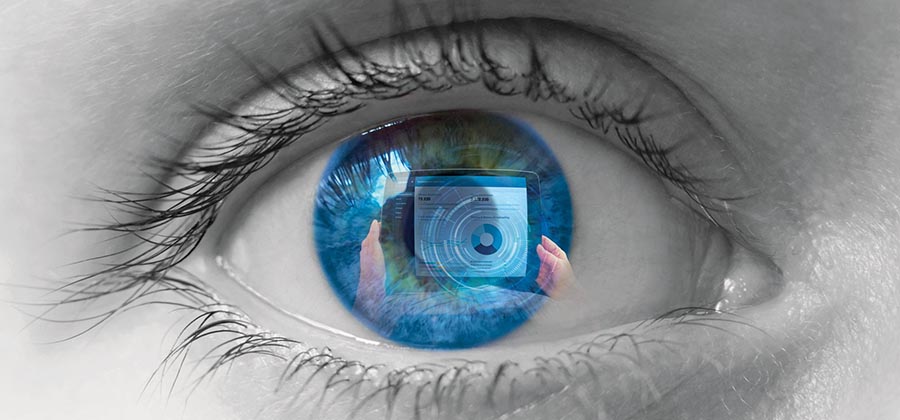From The LINK: Accessibility Enables Equality
Chris QuirkThursday, September 15, 2022Print this page.

Researchers in Carnegie Mellon University's Human-Computer Interaction Institute (HCII) want ensure that technology works for everyone, including the quarter of the population living with a disability. The widespread lack of accessible features on apps, devices and webpages means that people with disabilities face disproportionate barriers to technology and the needs it can meet.
"Accessibility is squarely at the intersection of computer science with people," said HCII Associate Professor Jeffrey Bigham. "The HCII was founded on the belief that we need a place with people who are comfortable working at that intersection. That's why accessibility is a core part of human-computer interaction and the HCII."
The most recent issue of the School of Computer Science's magazine, The LINK, features two HCII projects that fall directly into the accessibility camp. The first, EyeMU, allows users to operate their smartphone through gaze control. The tool could help users with limited agility control apps on their phones without ever touching the screen. The second, TouchPose, calculates hand postures based on the geometry of finger touch points on smartphone and tablet screens to improve their accuracy.
To learn more about these projects — and work underway in the HCII to build a stronger foundation for future accessibility initiatives — read the full article in the online version of The LINK.
Aaron Aupperlee | 412-268-9068 | aaupperlee@cmu.edu
